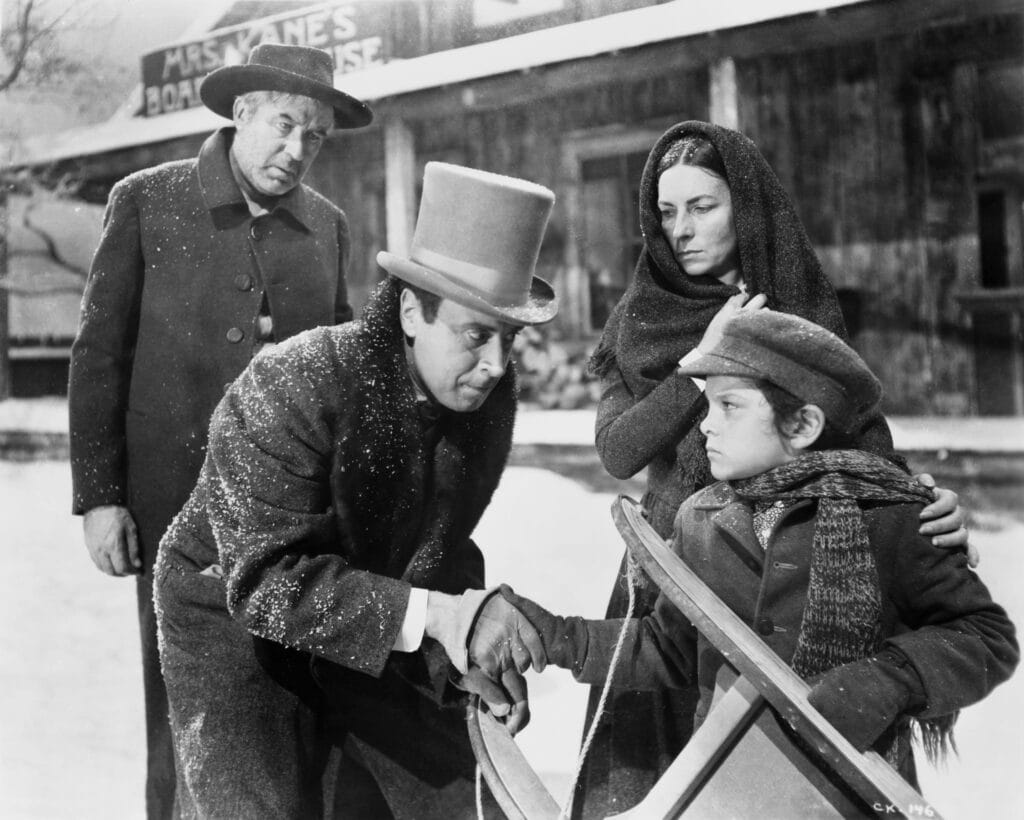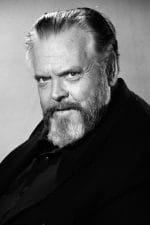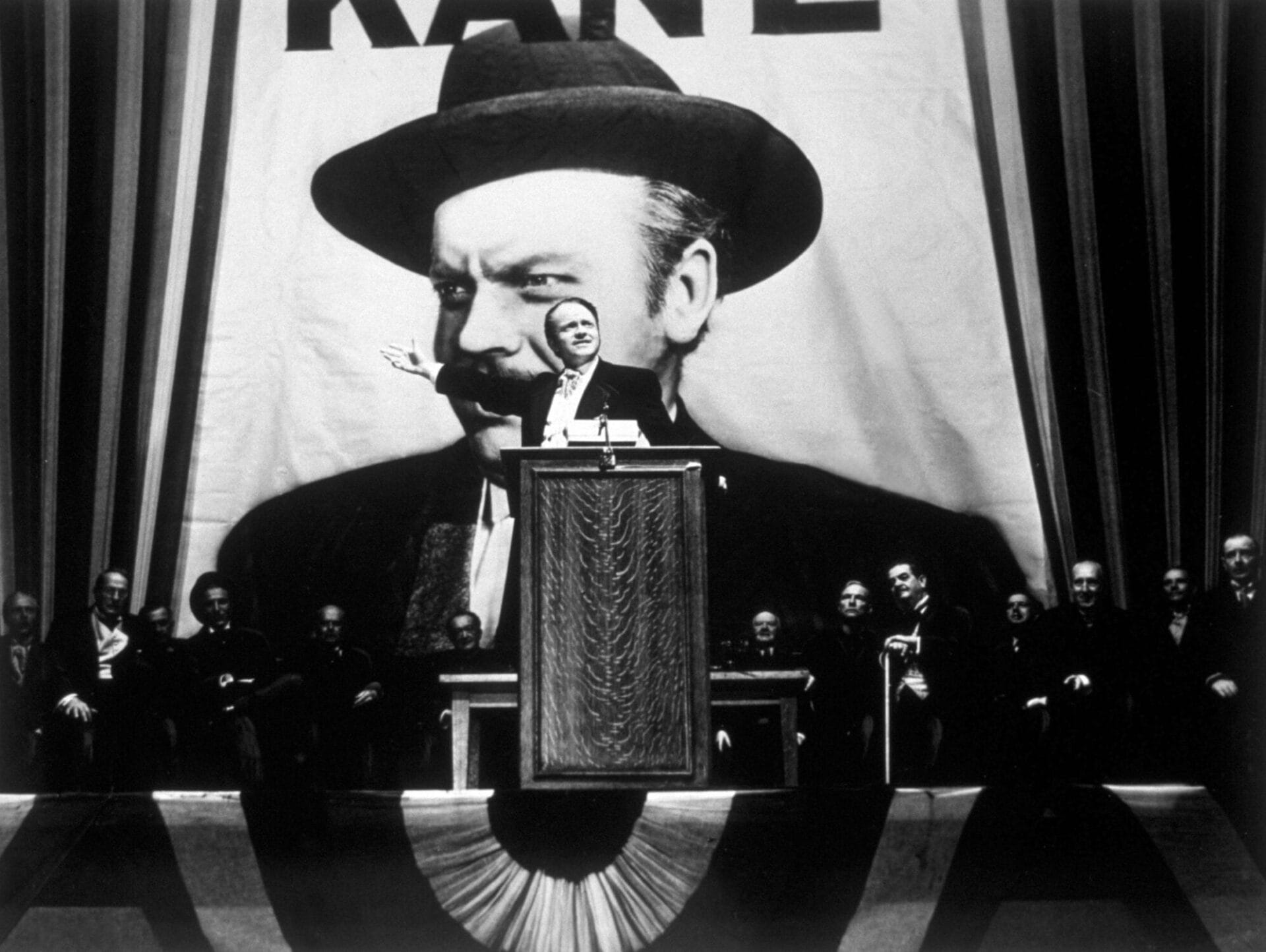Orson Welles directed Citizen Kane in 1941. This film features Orson Welles and Joseph Cotten
Citizen Kane is one of those landmark movies in the History of Cinema because of the melancholic overtunes and the rivers of ink (which weren´t so necessary) that the movie caused for reasons we will explain below even though it is too evident to me to explain them again.
Story line
The life of the press mogul Charles Foster Kane, based on the figure of W.R. Hearst.
The Stoty with Hearst

For many years it was considered to be the best movie in the History of Movies, for other things besides its merits, which are brutal too. Indeed: This is not even the best movie of its director but the gamble was perfect with the use of the marketing strategy.
The film is created after Welles created a sensation with the broadcasting of the War of the Worlds (an invasion by extraterrestrials that the audience was fooled by). He already knew what he was doing and he decided to take a big gamble: laughing in the face of the famous press entrepreneur, William Randolph Hearst. Since he wasn´t satisfied with creating a more or less apparent and basically fictitious biography, he added an anecdote that very few people knew of and those few people went with others (lots of people at that time) who drank more than what was good for them and at times disclosed things: Rosebud was the name that the (real) mogul used to name the more intimate parts of his girlfriend (hey, if you want, I can clarify). So, with that word, which he placed at the beginning of the movie to piss him off during the rest of the film, was enough: he had touched everyone´s balls and this was what he enjoyed in the end (and what we all enjoy a little): to provoke.
The gamble worked out and also failed, because what was a great movie became a flop ticket-wise (in the end this didn´t happen but too many years went by before he recovered the initial expense of the film) because… well, Mr. Hearst was the owner (also) of the distribution companies, production companies… those things (like as if I were to try and mess around with Google, and see what could happen to me).
As of that point, a disaster (or something like that) in the career of this American director.

Citizen Kane: Movie Review
The same as he liked provoking the media, he also liked provoking connoisseurs: he would say that he had no idea about film making and he does this which he assumes all the merit.
Now a film is going to be shown in Netflix by David Fincher called Mank, about the co-author, Herman Mankiewicz.
The film as far as scenes go, is fantastic and we were not used to seeing a story told in chunks, in the way of headlines in a newspaper. At all times it does what it should not do and since the guy was supposed to go unnoticed, he said “not at all” and he starred in it, assumed all the merit… and also all the blows.
(If you like directors and such, I will list them all, so you can take your time. I leave you with Bergman (a link, yes), that has nothing to do with this subject, but… that´s the way it turned out).
A photography, very much in black and white, daring narrative and blatant to the core which surprised everyone because he did what he felt like to show off as a director and after for the viewers who love persecution scenes… well let them head off to dinner with the producers.
We like the way the story is told in this movie. Welles came from the world of theater, but he makes a very modern movie: it is not just acting, the thing has to do with impossible camera angles seeking at all times what he called a search for the essence of films in each shot (all very Baroque in the early Dreyer style).
Our Opinion
It is more interesting because of the filming anecdotes than for being the best movie in History, which is a total exaggeration. It is great, yes, but deep down it is a longing and an applause for the capricious child that we all have inside us.
Still, for me the Rosebud anecdote is the one I won´t forget, and just for that, it deserves the five stars we are going to give it.
Director

George Orson Welles (May 6, 1915 – October 10, 1985), best known as Orson Welles, was an American film director, actor, theatre director, screenwriter, and producer, who worked extensively in film, theatre, television and radio. Noted for his innovative dramatic productions as well as his distinctive voice and personality, Welles is widely acknowledged as one of the most accomplished dramatic artists of the twentieth century, especially for his significant and influential early work—despite his notoriously contentious relationship with Hollywood. His distinctive directorial style featured layered, nonlinear narrative forms, innovative uses of lighting such as chiaroscuro, unique camera angles, sound techniques borrowed from radio, deep focus shots, and long takes. Welles’s long career in film is noted for his struggle for artistic control in the face of pressure from studios. Many of his films were heavily edited and others left unreleased. He has been praised as a major creative force and as “the ultimate auteur.” Read More
Cast
 Orson Welles / Charles Foster Kane |  Joseph Cotten / Jedediah Leland |
 Dorothy Comingore / Susan Alexander Kane |  Ray Collins / Jim W. Gettys |
George Coulouris
Agnes Moorehead
Paul Stewart
Ruth Warrick
Erskine Sanford
William Alland
See full credits >>
